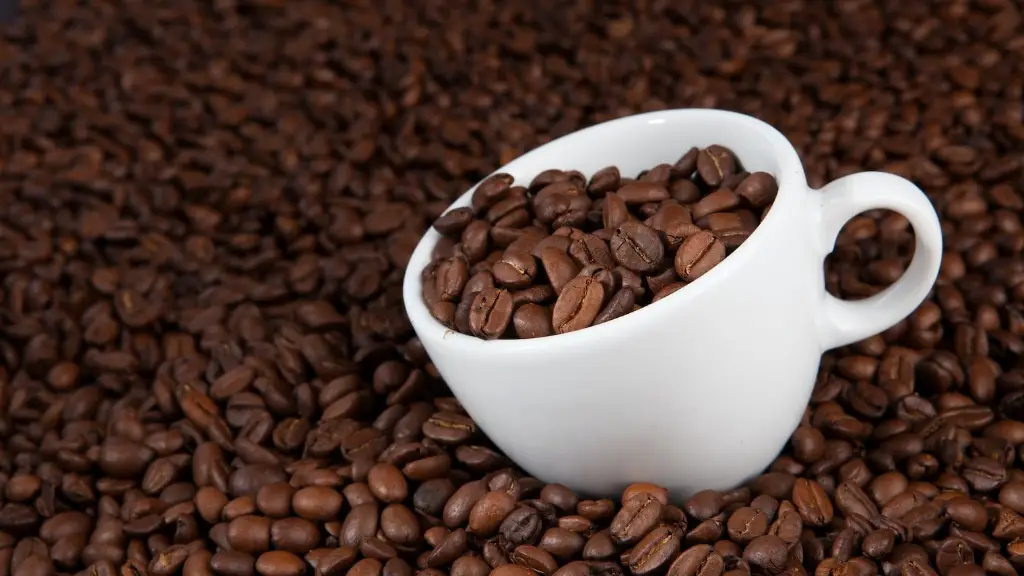The Effects of Caffeine
Coffee, tea and soft drinks contain varying amounts of caffeine, which has a mild diuretic effect. Caffeine increases your body’s production of urine, which can contribute to dehydration when combined with other dehydration factors such as excessive sweating. Caffeine stimulates the autonomic nervous system, which can increase heart rate and, in turn, accelerate the rate at which fluids are lost from the body.
While some people like to enjoy caffeine-containing beverages in moderation, the American Heart Association recommends limiting intake of these types of drinks to no more than three 8-ounce servings a day (equivalent to 400 mg of caffeine). Excessive caffeine intake has been associated with increased heart palpitations and an increased risk of fatigue, headaches and dehydration.
Dehydration Symptoms
Dehydration has many potential signs and symptoms. The more severe symptoms, such as confusion and arrhythmia (an irregular heartbeat), are rare but may occur with severe dehydration. When we become dehydrated, our body’s production of certain hormones and electrolyte levels changes, which can cause a variety of physical symptoms. The most common symptoms of dehydration include fatigue, dry skin, increased thirst, dry mouth, headache, and difficulty concentrating. Some people may also experience dizziness and nausea.
When you drink coffee, it may leave you feeling thirsty afterwards because it is a diuretic. Caffeine helps to increase the production of urine, which in turn can lead to dehydration. As well as being a diuretic, coffee also stimulates the autonomic nervous system, increasing heart rate and accelerating the rate fluids are lost from the body. As a result, you may feel dehydrated after drinking coffee.
The Benefits of Staying Hydrated
Staying hydrated is important for supporting physical performance and maintaining a healthy internal environment. It helps your organs to function properly and aids in nutrient assimilation and detoxification. Drinking plenty of water can also help to support your immune system, reduce inflammation, and keep your cells functioning.
You should aim to drink plenty of plain water throughout the day and limit your intake of caffeinated beverages. If you are actively participating in physical activities, such as running, make sure to replenish your lost fluids with electrolyte drinks as well as with plain water.
The Benefits of Drinking Coffee
Despite its diuretic effects, coffee can provide several health benefits. Studies have found that consuming coffee can reduce the risk of type 2 diabetes, improve cognitive performance, reduce the risk of certain cancers, and even boost athletic performance.
Caffeine has also been found to support physical performance by decreasing perceived exertion. It can boost concentration, alertness, and reaction time as well. The key is to drink coffee in moderation and make sure to replace electrolytes lost through diuresis.
The Effects of Caffeine on Blood Sugar Levels
Caffeine can also have an effect on your blood sugar levels. Research has found that people who consume high amounts of caffeine on a regular basis may be more likely to develop diabetes or have a higher risk for developing diabetes. Caffeine has been found to cause a rapid rise in insulin, as well as a decrease in glucose uptake in the body. This can have a negative effect on your blood sugar levels, making it important to monitor your caffeine intake when trying to maintain healthy blood sugar levels.
Tips for Reducing Caffeine Intake
If you are looking to reduce your caffeine intake, there are a few simple tips you can follow. Try to rotate the types of drinks you consume, limiting high-caffeine beverages such as coffee and energy drinks. You could also try drinking more herbal teas and green tea, both of which contain lower levels of caffeine.
Another way to reduce your caffeine intake is to replace coffee with decaffeinated coffee or with chai or matcha lattes. These drinks contain lower levels of caffeine than coffee but still provide the beneficial health effects associated with coffee, such as improved metabolic health and improved cognitive performance.
Ways To Increase Hydration
Drinking plain water is one of the best ways to ensure that you are well hydrated. Aim to drink at least 8 glasses a day, and consider carrying a water bottle around if you tend to forget to drink regularly. You could also try incorporating more foods in your diet that are high in water content, such as cucumbers, tomatoes, and watermelon.
If you find it difficult to remember to drink water throughout the day, you could also set reminders on your phone or download hydration tracking apps. These apps allow you to set goals for yourself and track your water intake throughout the day, which can be a great tool for helping to ensure that you are getting enough fluids into your system.
Herbal Teas and Coconut Water
Herbal teas, such as chamomile, peppermint, and ginger, are great options for people who are looking for a caffeine-free drink. They have a range of health benefits and can be very calming and soothing.
Coconut water is also a great option for people who are trying to stay hydrated. Coconut water is a natural source of electrolytes, which is important for helping to replace lost fluids and minerals.
Health Risks of Dehydration
Dehydration can be an easily preventable but serious health concern. Insufficient fluid intake can lead to a range of health issues, such as cramping, headaches, constipation, fatigue, and poor mental focus.
Prolonged dehydration can also lead to more serious health problems, such as kidney stones, heat exhaustion, muscle loss, and low blood pressure. In extreme cases, it can even be fatal. It is important to stay hydrated and monitor your caffeine intake in order to reduce your risk of developing these health problems.
Reduce the Risk of Dehydration from Coffee
When it comes to reducing the risk of dehydration from coffee, the key is moderation. Try to limit your caffeine intake to no more than three servings a day and make sure to drink plenty of water throughout the day. You could also try rotating the types of drinks you consume by replacing coffee with decaffeinated coffee, herbal teas, or matcha lattes. Lastly, consider replacing lost electrolytes found in coffee with electrolyte-rich drinks such as coconut water. By following these tips, you can reduce your risk of dehydration while still getting the benefits of coffee.


